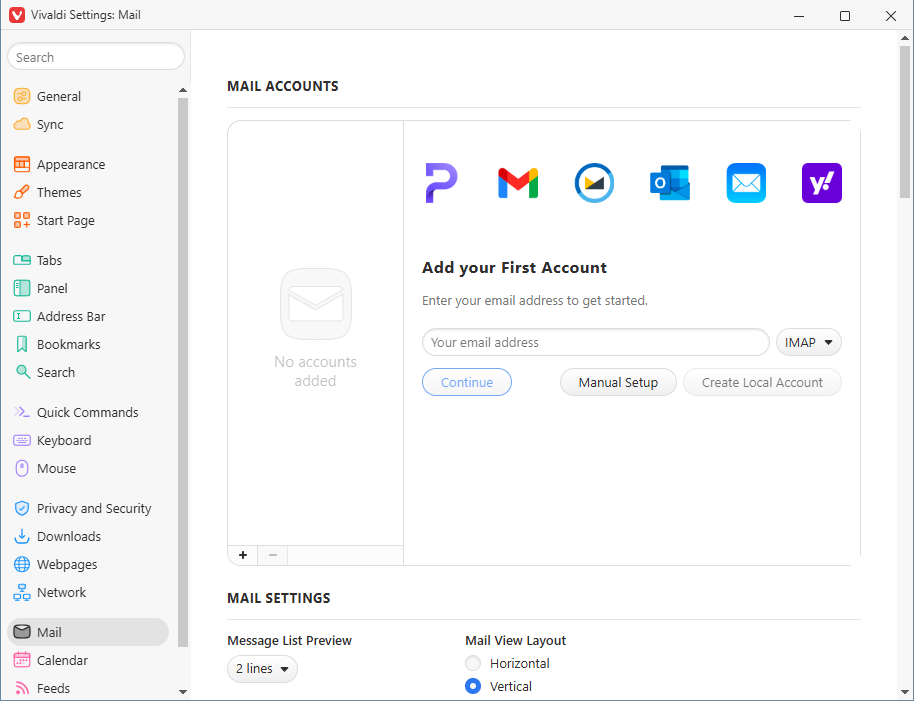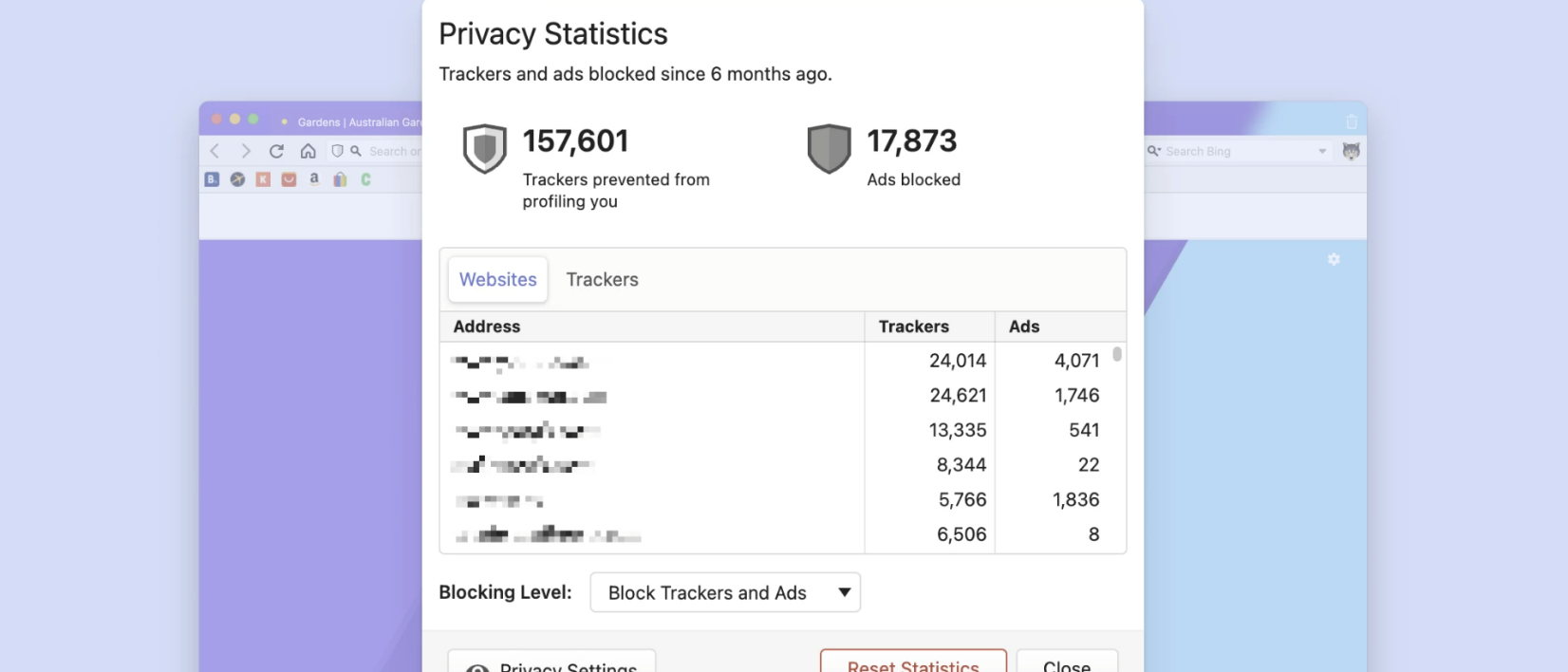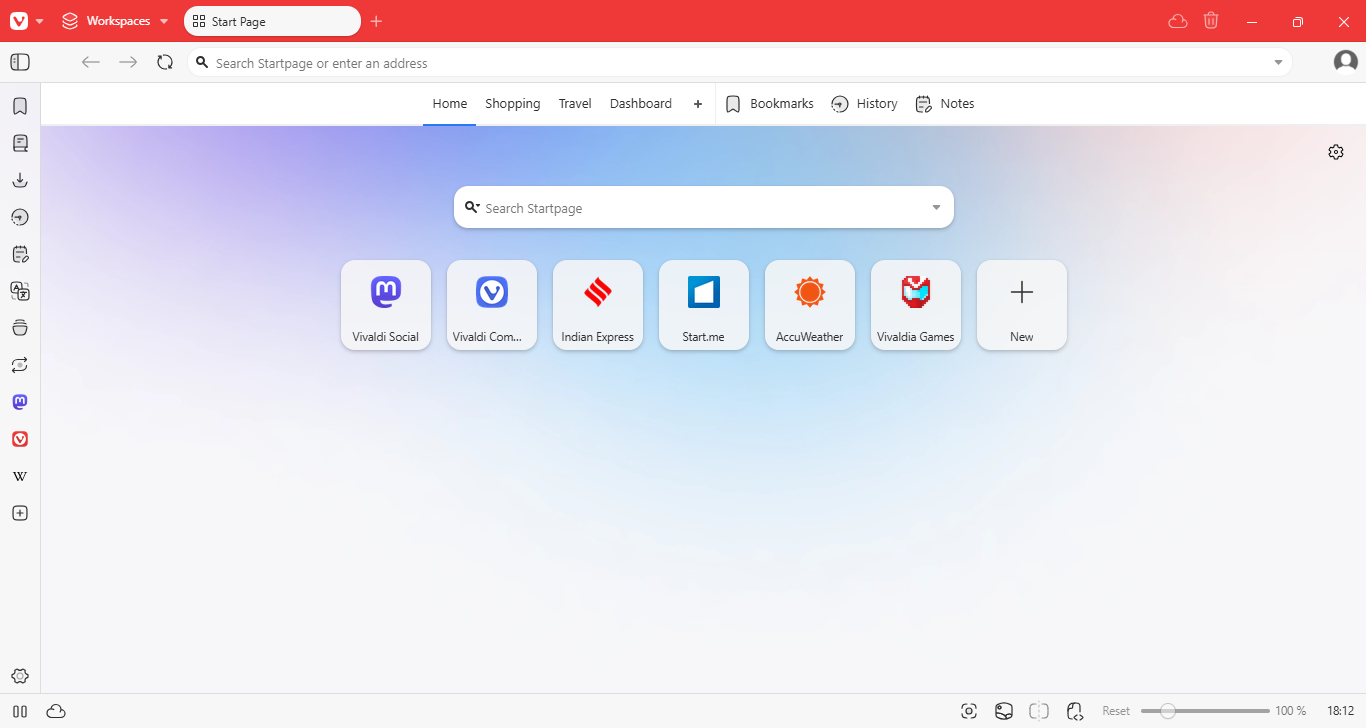TechRadar Verdict
People who enjoy feature-rich browsers will certainly enjoy Vivaldi. After all, there’s just so much to do.
Pros
- +
Highly customizable design
- +
Comes with built-in productivity tools
- +
Includes an email client, and a feed reader
- +
Built-in customizable ad-blocker and tracker
Cons
- -
Doesn’t have extensions and add-ons of its own
- -
No AI-powered assistant
Why you can trust TechRadar
Need a browser to handle sensitive information? A secure and encrypted browser like Vivaldi might just be what you’re looking for.
Vivaldi might not be one of the most popular browsers, but if you’re after a feature-loaded option, it's a must-try. The browser is created by former Opera developers, and aims to add unique features and functionality on top of its Chromium-base.
It's also fast, responsive, and incredibly light on your system. Read till the end to find out more about Vivaldi and see if it's the best browser for you.
Vivaldi browser: Features
The best thing about Vivaldi is its tag management features. For starters, you can put inactive tabs on hibernation mode to save battery and free up more space. For managing multiple tabs, Vivaldi offers a separate set of features. You can open them in a split-screen view to see multiple pages at once. Or, you can also group similar tabs together in a two-way stack, keeping your workspace clean and clutter-free.
Say you want to access all the tabs you opened in one particular session — Vivaldi allows that by giving you the option to name each session. Once done, all you have to do later is type in a particular session’s name, and the tabs will be in front of you. It's the perfect feature for both students and working professionals who work on the same topic on a long-term basis.
Vivaldi comes with a built-in ad blocker, so it offers a calm and peaceful “Reader View.” This basically means that you can cut through all the unnecessary notifications, ads, and floating windows to concentrate on your work and enjoy nothing but the content you’re looking for online. It can also hide the irritating cookie banners and popups on most websites.
You can also use its “Break mode” that fades content and pauses any playing media to help you take your eyes off the screen, and relax. It also includes a mail client, calendar, and a feed reader. They are disabled by default, but you can enable them from the settings.
Sign up to the TechRadar Pro newsletter to get all the top news, opinion, features and guidance your business needs to succeed!
If you want to watch a video as you work or browse the internet, Vivaldi will put that on a floating window. Of course, you’ll be able to adjust the position of this small window so that you can look at it and still see what’s playing on the screen behind it. This facilitates multi-tasking too.
Vivaldi’s installation sharing is another benefit of using this browser. No need for multiple installations for different users — after you create a user profile, you can share the installation with other users.
If you want to check social media feeds or chat with someone as you work, you can add additional web panels on the side of the screen. If not, this space will be occupied by the default menu that lets you manage your bookmarks, downloads, and more.
The sidebar also includes a Notes feature, as well as a Translate tool. Like any modern browser, Vivaldi also has a Sync feature that allows you to synchronize bookmarks, history, passwords, open tabs, and more with other Vivaldi installations.
Another interesting feature is its support for mouse gestures. Thanks to this feature you can perform common tasks such as open and close tabs, open a link in a new tab, reload page, and more with a flick of the mouse. The browser ships with several default gestures, and you can also define your own.

Vivaldi browser: Privacy
Vivaldi does pretty well in terms of privacy and security. It doesn't track your browsing history, and according to its privacy policy, it doesn't profile and track users, nor does it collect and sell user data.
If you use the Sync option, your download history and other browser data will be synced to other devices via an encrypted channel. As already mentioned, there’s also a built-in tracker and ad blocker, plus the ability to disable all cookies from third-party sites. Also, like most of its peers, Vivaldi supports private browsing and has a very capable password manager as well.
Together, these features protect you from trackers and potential hackers who might want to break into your system.

Vivaldi browser: Ease of use
Vivaldi is quite easy to use. It’s Chromium-based and made using the latest algorithms, so the user interface won't take too long for you to master. The same goes for the Vivaldi mobile app, which is quite similar to the web version in terms of aesthetics and appeal and is just as easy to use.
After installation, it takes through an onboarding process that helps you import bookmarks and other data from other browsers, choose a theme, and more. By default it places tabs at the top, but you can also place them on the left, right, or at the bottom of the window.
The best thing about the browser is its fully functional sidebar. Besides providing easy access to the browser’s downloads, history, and bookmarks, you can also access all of Vivaldi’s most used tools from here.
We particularly like how the browser’s design is customizable, and you can experiment with multiple themes of your choice.
Vivaldi browser: Competitors
Vivaldi faces tough competition from Google Chrome, Microsoft Edge, Safari, and Opera, to name a few.
The biggest drawback of Vivaldi is that it's relatively new to the market. On the other hand, browsers like Opera, Firefox, and Chrome have been around for a long, long time. They have a strong hold over the market, making it difficult for new browsers like Vivaldi to break in.
The browser has also deliberately avoided jumping on the AI-bandwagon with its CEO saying that AI isn't a priority for them.
Vivaldi also doesn’t have extensions of its own. Instead it points users to the ones on the Chrome Web Store, thanks to its Chromium base. But this comes with a caveat—not all extensions designed for Chrome will work flawlessly on Vivaldi.
However, on the flip side, Vivaldi not only includes a free VPN like Opera and Edge, but its implementation, courtesy of ProtonVPN, is uncapped. That said, the VPN facility is currently only available on the desktop version.
Also, Vivaldi is one of the few browsers that provides a commendable environment to foster work and efficiency — it offers a separate set of task management tools that helps you manage your tabs and keep your workspace clutter-free.
Vivaldi browser: Final verdict
People who enjoy feature-rich browsers will certainly enjoy Vivalidi. After all, there’s just so much to do.
For example, it makes browsing multiple tabs more efficient through the Tab Stacking feature — group two or more tabs of the same subject together. You can also send the inactive ones into hibernation mode to save battery and CPU power.
On top of all this, Vivaldi also comes with a built-in tracker and ad blocker, which, to be fair, are available on most browsers. That said, their presence is certainly appreciated. One protects you from malicious websites that collect user data, while the latter blocks annoying pop-ups and ads that might otherwise disrupt your experience.
All said and done, thanks to the inclusion of an email client, and a feed reader, Vivaldi is designed for people who want to use their web browser for more than just browsing the web.
Also check out our roundup of the best anonymous browsers.

Désiré has been musing and writing about technology during a career spanning four decades. He dabbled in website builders and web hosting when DHTML and frames were in vogue and started narrating about the impact of technology on society just before the start of the Y2K hysteria at the turn of the last millennium.
You must confirm your public display name before commenting
Please logout and then login again, you will then be prompted to enter your display name.
